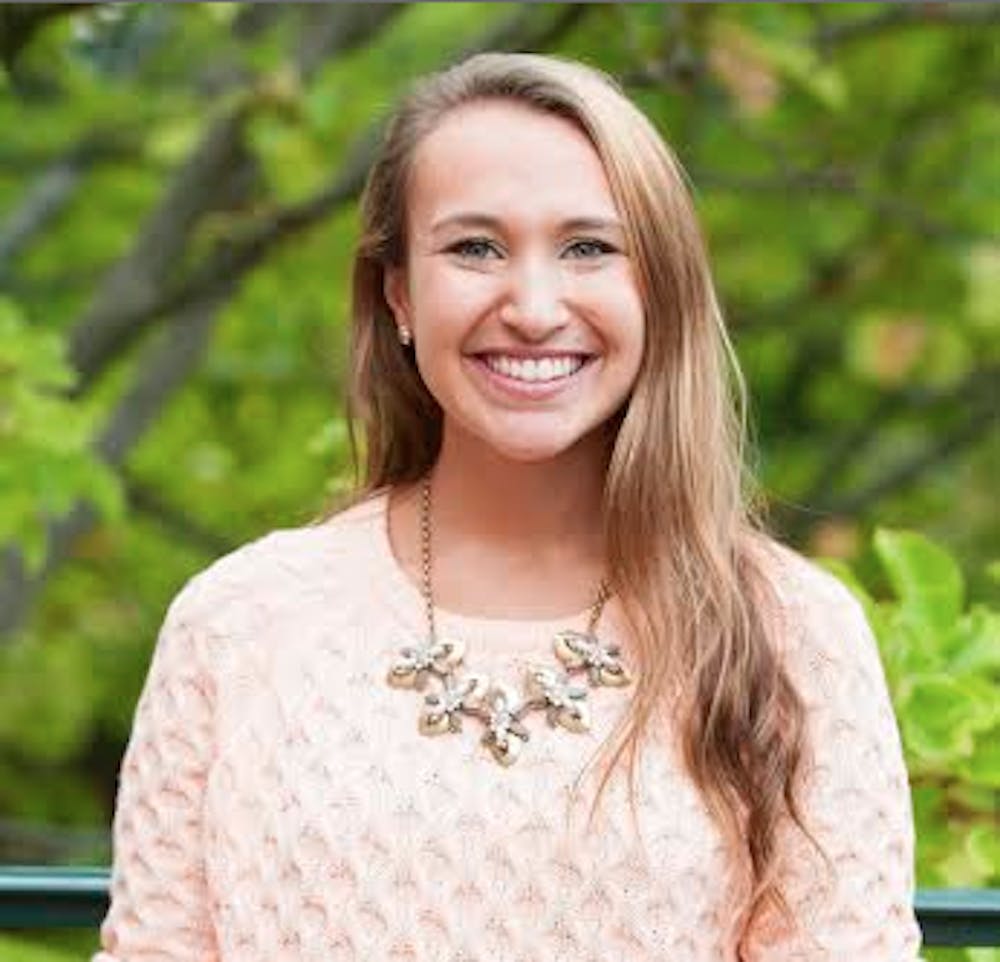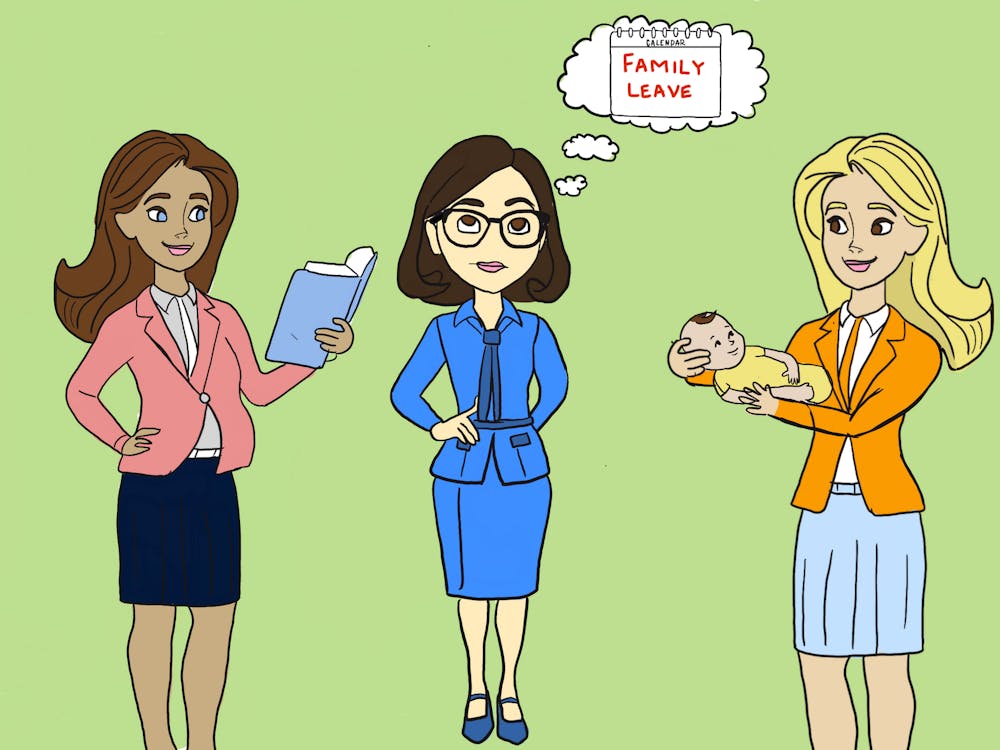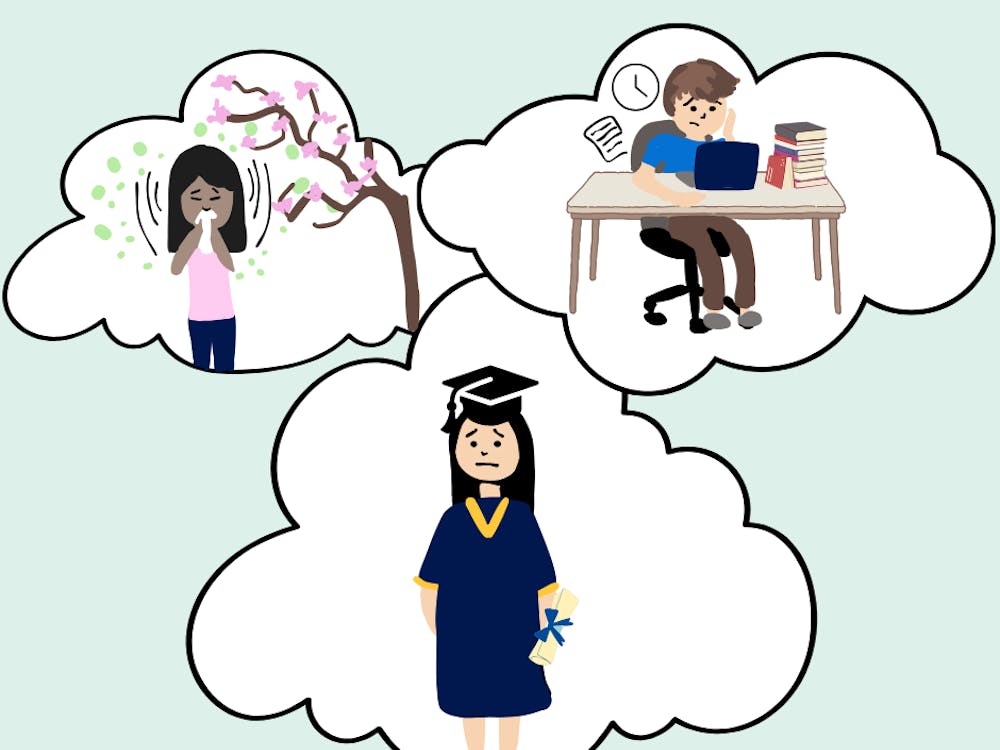It’s been a hard semester for me.
This is something that has taken me a while — specifically, the bulk of the past couple months — to admit to myself, and it’s been a difficult conclusion to draw.
I think it would probably be just as hard for anyone else who lives here, as we’re effectively saturated with the perceived success and dynamism of the students around us. It’s hard to come out as imperfect at a school where success is not only praised, but heralded as an integral component of social status.
So, it’s taken me a while to be honest with even myself — and I still seldom express it out loud — but it’s been a hard semester for me, on a number of fronts. When I got here in August, I didn’t have a reason to believe the high I felt the entirety of first year — a product of a new place, new friends and validation derived from unprecedented sources — would ever diminish. But I think it goes without saying that the tragedies the University experienced — particularly the second-year class — would take an emotional toll on anyone.
I’ve witnessed more pain in the eyes of my classmates this semester than I ever thought I would have to. I watched faces succumb to contorted expressions of anguish at Hannah’s vigil in the wake of her disappearance, and I looked on reluctantly as faith in her return agonizingly waned. I’ve felt a lingering emptiness in response to the University’s loss of Connor. The U.Va. community has worn tragedy and misfortune in what seems like in incessant manner of late.
Thus, a University climate with such harsh conditions has forced me to come to terms with my own emotional vulnerability. What I seem to derive solace from, then, is the notion that I am no more susceptible to pain and hardship than any other person.
We, as humans, are vulnerable. Somehow, in the face of the insecurity I’ve been harboring recently, I’ve found strength in the idea that to feel pain is to be human.
During a recent conversation with my dad on the phone, he offered a bit of relevant wisdom: “When you’re happy, it doesn’t matter why.” I might be romanticizing the idea of the inherent value of human emotion, but I think there’s something to be said for the concept of appreciating happiness for what it is, rather than why it’s there. It’s great to feel good, and the feeling is good regardless of what created it.
I don’t mean to completely disassociate feelings from what induces them, and I definitely don’t mean to devalue the gravity of the tragedies we’ve recently confronted as a school. But if there’s a certain component of happiness that we can enjoy simply because we’re feeling it, I wonder if I can’t apply the same logic to hardship and to heartbreak.
I’m amazed and humbled by the human capacity to feel. As much as pain is accompanied by personal struggle, to me it also serves as a needed reminder of the fallibility integral to the human experience. As hard as trying times can be, confronting them emotionally has reminded me of what a valuable and exhilarating experience it is to be able to feel.
I am united with my peers at the University insofar as we are all people, we have all been dealt a difficult hand and we are all dealing with it accordingly. To that end, I think there’s something humanizing in feeling pain, and there’s something inherently unifying and soberingly beautiful in feeling human.
Victoria’s column runs biweekly Tuesdays. She can be reached at v.moran@cavalierdaily.com.







